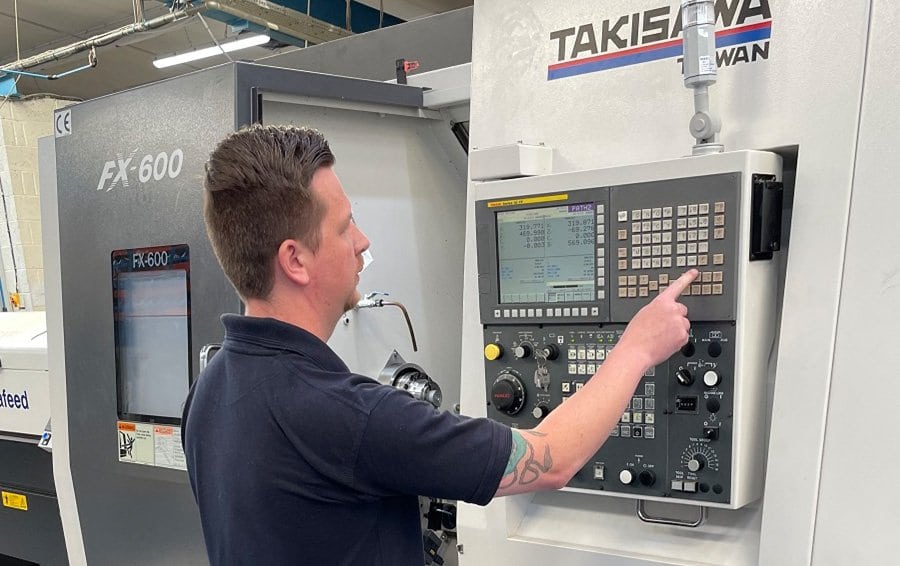Coventry-based precision engineering business, Harris RCS, has taken delivery of its first two industrial robots to reap the benefits of factory automation. The Automata Eva machines will drive the manufacturer’s digital transformation, automating more mundane tasks which will allow staff to develop new skillsets to support the company’s future growth.
For more than four decades, family-owned business Harris RCS has committed to continuous business improvement. The company provides precision CNC machined parts for customers in aerospace and other hi-tech sectors and is working to boost competitiveness with the aid of smart factory technologies. Its new robots take centre stage in that transformation, helping automate tasks in the inspection and part marking departments.
Gearing up for the next industrial revolution is all about embracing smart factory technologies. However, British manufacturers, have been slow off the mark investing in Industrial Digital Technologies (IDTs). According to Make UK’s Innovation Monitor 2050 Report, only 13% of UK manufacturing companies have implemented IDTs to the stage at which they are seeing a significant improvement in productivity.
Harris RCS is determined to buck the trend and has collaborated with the world-leading business innovation catapult, the Manufacturing Technology Centre (MTC) to prepare for Industry 4.0. They have worked together on a series of projects to exploit disruptive technologies. MTC has helped Harris RCS develop a new digital scheduling system and its latest work on robotics is designed to use automation to boost productivity and build resilience.
The technology experts at MTC carried out a robotics project with the manufacturer to assess business needs and identify which processes were best suited to automation. The team also encouraged Harris RCS to apply for the Manufacturing Growth Fund which provided 40% grant funding support for its first two robots.
The robots are now fully operational and driving efficiencies across the shop floor. At its best, automation is about enhancing jobs rather than replacing them and Harris RCs has assured staff that nobody will lose their job due to technology. The robots allow the manufacturer to automate mundane and low-skill tasks so that staff can develop their talents elsewhere.
Harris RCS Operations Manager, Matthew Fielder, explained: “Our talented staff are experimenting with the robots and taking a problem-solving approach to see how they can automate tasks so that we can upskill our employees and give them higher value work. Everyone is excited about how the robots can improve our working environment, increase capacity and leverage talent to create new business opportunities.”
That determination to use automation to support upskilling skills has made the manufacturer rethink how the robots are integrated into the business. Instead of buying a comprehensive package from a robot supplier, staff were encouraged to take ownership of the robots, creating a suitable environment, dealing with set up and learning how to programme them from scratch. Employees have been given time to experiment with the robots and have used their talents to build customised programmes including designing grippers to pick up parts as well as exploring the potential for robots to operate machines.
Harris RCS is already seeing the benefits of smart factory technologies through increased capacity and improved productivity. It is now working with MTC on the next stage of its digital transformation, drawing up a technology roadmap and striving to become a paperless factory.






